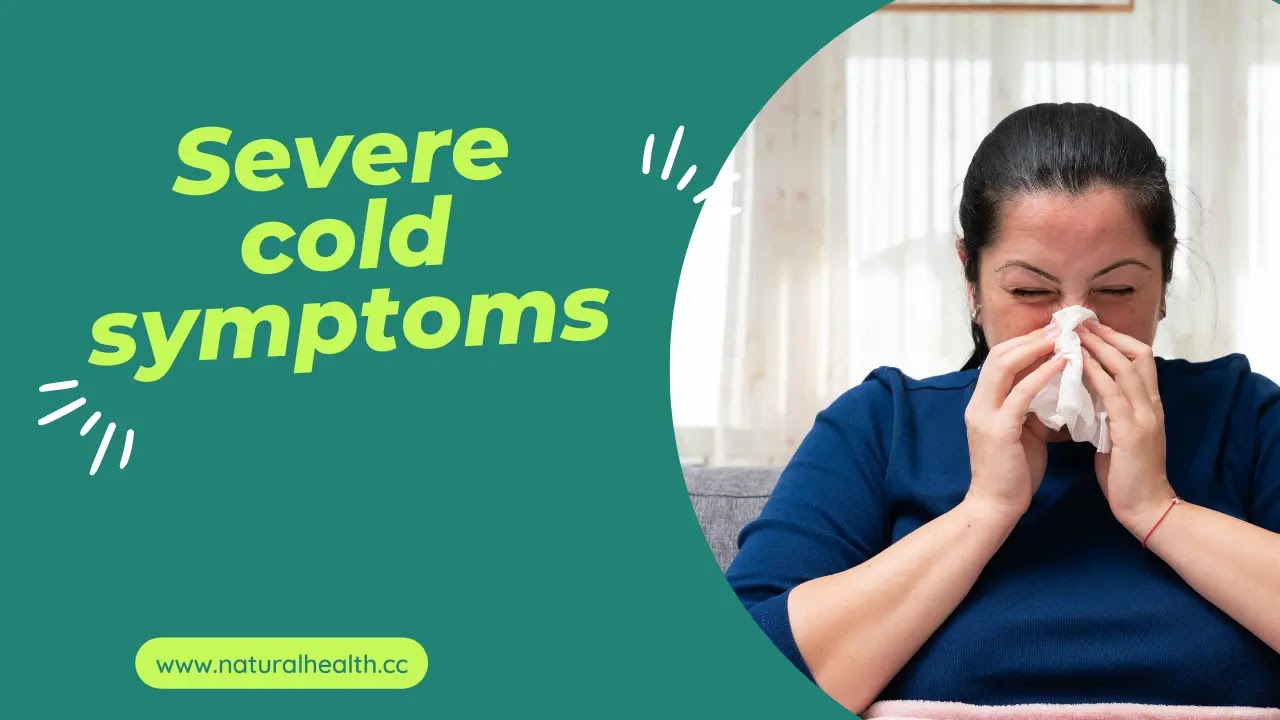
Severe cold symptoms Due to the fact that many people confuse the of severity symptoms cold with the symptoms of other forms of low that affect the respiratory system, we will go through these symptoms in detail in this article.
When a person has symptoms of a cold, they experience a variety of symptoms that might cause them discomfort and concern at times. What exactly are the signs and cold symptoms of a severe cold? What is the procedure for diagnosing this condition? This article will teach us everything we need to know about it:
what are Severe cold symptoms?
Among the signs and common cold and flu symptoms include:
- Common symptoms
The following are some of the most common cold symptoms of a severe cold include:
- a headache;
- sneezing;
- coughing;
- a headache;
- I have a sore throat.
- runny nose
- Rare symptoms
Among the more unusual symptoms include:
- Pink eye is a medical term that refers to the appearance of pink eye.
- Muscle aches and pains;
- shiver;
- Fatigue.
- If the patient has a weakened immune system, he or she may contract pneumonia.
Complications of a severe cold
Generally the presence of severe cold is associated with a number of problems, which vary depending on the condition, including:
- Dehydration is a problem.
- My mouth felt dry.
- Fatigue.
- Urine turns a dark tint
- headache.
- Infections of the ears
- Problems with balance or hearing.
- I'm having trouble sleeping.
- Fever that hasn't been explained.
- Having a sensation of tightness in the ear
- abscess in the ear
- Infections of the sinuses
- Pain and pressure in the nose and eyes;
- fever.
- Weakness and weariness are experienced.
- I have a sore throat.
- Breath smells bad.
- Loss of the ability to smell.
- Coughing in the middle of the night.
- Congestion.
- Bronchitis is a respiratory illness
- Coughing up yellow or green mucus with a dry, severe cough.
- a feeling of being out of breath.
- Wheezing,
- chest pain and a sore throat are all symptoms of asthma.
- Chills.
- aches and pains throughout
- the body;
- chest congestion
- 5. Pneumonia
- headache
- loss of breath;
- Chest discomfort is a common occurrence.
- exhaustion to the extreme.
- Coughing that occurs on a regular basis may be accompanied by pain.
- fever.
- Cyanosis of the mouth and surrounding areas.
- Chills.
- Confusion or shifts in one's state of mind.
- 6. Rare complications
Sepsis, myocarditis, multiorgan failure, and encephalitis are among the conditions that can occur.
There are several methods for diagnosing severe colds.
In general, cases of severe colds, infections, and other colds are diagnosed based on the symptoms that the patient is experiencing; however, if the doctor has a suspicion of a bacterial infection or a suspicion of another condition, the doctor may ask the patient to undergo an X-ray examination of the chest area to rule out any other possibilities.
He may also request more testing to rule out the possibility of other illnesses.
When should you visit a doctor?
If you have been taking the medication and administering the doses as prescribed without experiencing any improvement, you must see a doctor as soon as possible to avoid exacerbating the condition and to receive the appropriate treatment. This is especially important if you have been taking the medication for the following conditions:
- Breathing difficulties or chest pain should be taken seriously since they may suggest a more serious condition such as asthma, pneumonia, or heart disease.
- A fever and a high body temperature indicate that you are not feeling well.
- Vomiting or severe diarrhea are common side effects.
- If you have severe pain when swallowing, it could be a sign of a throat infection.
- If you have a persistent cough that does not go away, it could be caused by a postnasal drip.
- Congestion and headaches on a constant basis.
